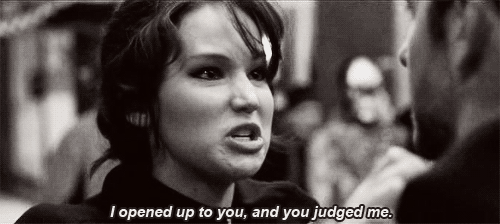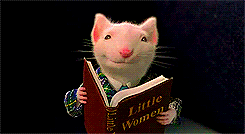
Does anyone else feel pretentious saying – “I’m writing a novel”?
The few times I’ve been asked what I’m doing on my laptop, or what I’ve worked on during the week, my general response is a stuttering, incoherent line like “just, kind of, well trying to uh, write this book thing.” Actually.
I’d like to say it’s humility, but more realistically, perhaps it’s embarrassment. I’ve come to realise that the harshest critic I’ve encountered is myself.
Rejection is often taken as a personal offence. We consider ourselves unworthy, talentless, never able to match the authors we admire so dearly.
The world of publishing is initially a glittering beacon of hope. It promises huge rewards for the stiff back, the torturous editing processes, the hours spent researching and compiling. Then we send a manuscript out, sure that it’ll be whipped up by any publisher lucky enough to lay eyes on it, and, oh … no response.
Another few emails. Nothing. But why? This story is damn good. I’m practically a literary genius. I’ve read Hunger Games. It’s okay, good concept … I guess … but delivery could use some work. Come at me Suzanne Collins.
Soon after, we realise that publishing typically isn’t a beacon of hope – it’s really a black hole. Throw whatever you want into it! Just know that you’ll probably never see that thing again.

It’s a sad moment when you realise that even a rejection email gets you excited, because at least you’ve been acknowledged.
A rather grim sentiment, but this was my experience, anyway. Don’t stop reading – this gets let’s depressing, I promise.
I’m still writing (take that Penguin Books), and I’ll continue to write. I won’t regret sending one hundred emails and being rejected each time. I’ll only regret not sending those emails in the first place, and never knowing what might’ve come of it.
Consider this.
Lord of the Flies by William Golding was rejected 20 times before it was published
Gone with the Wind by Margaret Mitchell was rejected 38 times before it was published
Carrie by Stephen King was rejected 30 times before it was published
Beatrix Potter had to publish The Tale of Peter Rabbit herself
Rudyard Kipling was told he didn’t know how to use the English language
Harry Potter and the Sorcerer’s Stone was rejected 12 times and J. K. Rowling was told “not to quit her day job”
Agatha Christie had to wait four years before getting published
If Agatha can do it – so can I. So can you. And if after four years, we still haven’t had interest from publishers, let’s explore the world of self-publishing, like good ol’ Beatrix Potter.
Until then, let’s give ourselves the best chance possible.
I tried my hand at a young-adult fantasy manuscript a few years back, and even sent it out to publishers. I wasn’t entirely sure anything would come of it, in fact I was quite sure it wouldn’t, but you never know, right?
Wrong. It was never going to happen.
The concept was okay, but needed work. The characters were relatively solid, sometimes, but a little 2-Dimensional. I half-heartedly built a world I didn’t fully understand, failed to prepare a coherent outline, and spent most of my time correcting sentence structure.
I will say – the whole experience taught me many things, so for that I’m grateful. And maybe one day I’ll attempt a re-write. Who knows.
But the past year or so I’ve been chipping away at another novel. I feel more comfortable with this one (I think), and my aim is to have the first draft finished by the end of this year. (Uh-oh, now I’ve said it- it has to happen). (I can see myself removing this paragraph in December, so if you see it before that time comes, pretend you haven’t).
As scatter-brained as this blog post might seem (probably a little something like my first novel attempt), my point is simple: story-telling has no limits.
We are not limited by other authors. They are not competitors. They are people, like you and me, stringing together narratives they consider worthy of sharing.

Watch what they do, but don’t let the exceptionally structured sentences and gripping, engaging characters get you down. These are tools you can utilise for your own inspiration. Research. Appreciate them, learn from them, and get writing.
‘You are confined only by the walls you build yourself.’ – Andrew Murphy
So don’t build those walls. Step into the exciting spaces your imagination allows, and be kind to yourself.
HG.